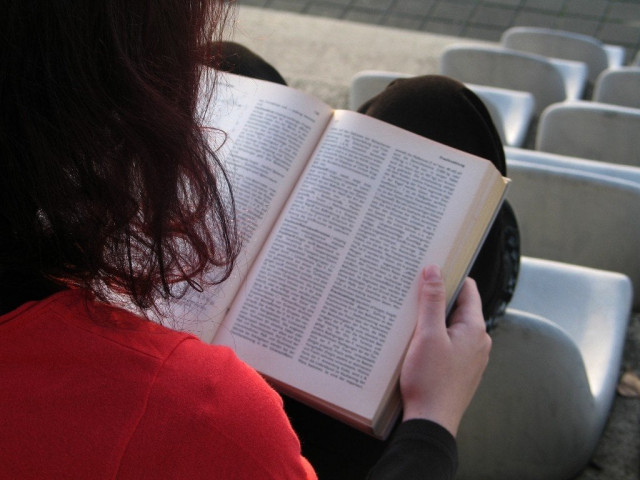Teaching in English
What is most needed in the country is a re-haul of content and changing medium of instruction is unlikely to fix that.

What the government must also consider is that if its successors do not continue with English as the medium of instruction, thousands of children will be left in the lurch. PHOTO: FILE
At first glance, the step — part of the Pakistan Tehreek-e-Insaf ’s six-point education policy — seems unnecessarily ambitious. Education must be contextualised to the needs of the learners and children must not be put in an alien space where they are unable to express their view, and question and analyse content. Inability to effectively communicate may not only cripple creative thinking, but may also hurt an individual’s self-confidence. If children first learn to read and have a deep understanding of subjects in a familiar language, they are likely to understand both English and other subjects better. The focus on learning a particular language as opposed to learning itself may also further encourage an environment of rote learning.
While the provincial government has a training programme on the cards, it remains to be seen if short-term training will be enough to equip teachers to be able to teach in English. Pakistan has a dearth of English teachers, let alone teachers who can teach other subjects well in English. What the government must also consider is that if its successors do not continue with English as the medium of instruction, thousands of children will be left in the lurch. Making education a matter of debate and priority goes to the PTI government’s credit. But what is most needed in K-P, and in rest of the country, is a re-haul of content. And changing the medium of instruction is unlikely to fix that.
Published in The Express Tribune, January 7th, 2014.
Like Opinion & Editorial on Facebook, follow @ETOpEd on Twitter to receive all updates on all our daily pieces.














COMMENTS
Comments are moderated and generally will be posted if they are on-topic and not abusive.
For more information, please see our Comments FAQ